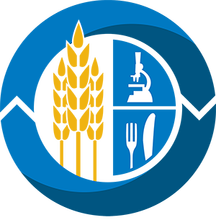Supply chain resilience
What We Do
Food supply chains that move product from farm to fork are becoming increasingly complex. These supply chains comprise a complicated network of producers, processors, manufacturers, and retail facilities with product moving by road, rail, air, and sea across the globe. Supply chains are vulnerable to disruptions from natural disasters, intentional adulteration to make money, cargo theft and other transportation hazards, cyber attacks, and unexpected shutdowns of critical supply chain nodes. The Food Protection and Defense Institute is engaged in research and technology development to strengthen food supply chains. These efforts have been successfully applied to supply chains within other critical infrastructures to include medical, manufactured goods, and fuel.
How We Work
The Food Protection and Defense Institute actively engages with supply chain stakeholders to understand supply chain structure and underlying vulnerabilities. Our research focuses on articulating and assessing the complexities of the supply chain with consideration of dynamic hazards and threats that exist in the world. The research extends to identifying and proposing recommendation to reduce the threat and risk of disruption within the supply chains. Our team actively looks at all aspects of supply chain from construction to identification of disruption. We use a data-driven approach to develop solutions to address pressing, real-life supply chain structural and hazard challenges.
Our Capabilities
Institute-developed technology solutions support supply chain documentation, risk and criticality assessment, secure information sharing, product tracing, and event response. The Food Protection and Defense Institute team has in-depth knowledge of various typical food supply chain structures and the evolving nature of supply chain vulnerabilities. Our team also has experience with modeling and working with supply chain data and running simulation exercises that test the resiliency of supply chains during disruptions (e.g. ingredient loss, infrastructure collapse, emergency situations). Supply chain tools developed by Institute include:
- Criticality Spatial Analysis (CRISTAL) – a geo-spatial web application designed to allow private food companies and government agencies to document, assess structural and hazard risk, visualize, and compare supply chains
- CRISTAL Mobile – a mobile technology for documenting, inventorying, and managing food supply chains in the field during disaster response
- CRISTAL Respond – a geo-spatial web application designed to build dynamic supply chains in disaster response situations where all responders from public and private sectors integrate their capabilities aligned to needs to provide robust, holistic solutions to deliver the right supply at the right time to the right need.
Expertise
We have both in-house experts and global collaborators actively engaged in supply chain-related work. The Food Protection and Defense Institute has developed a robust network of partners representing a wide range of private and public stakeholders. These include industry representatives, transportation and logistics providers, and government agencies at the local, state, and federal levels. Our network also includes intergovernmental agencies and NGOs who play a critical role in supply chain resilience, particularly during emergencies. Additionally, the Institute's experience with supply chain research and technology has expanded beyond food to also include medical supplies and humanitarian relief items.
Food Protection and Defense Institute
University of Minnesota
1365 Gortner Ave.
St. Paul, MN 55108
[email protected]
612-624-245
